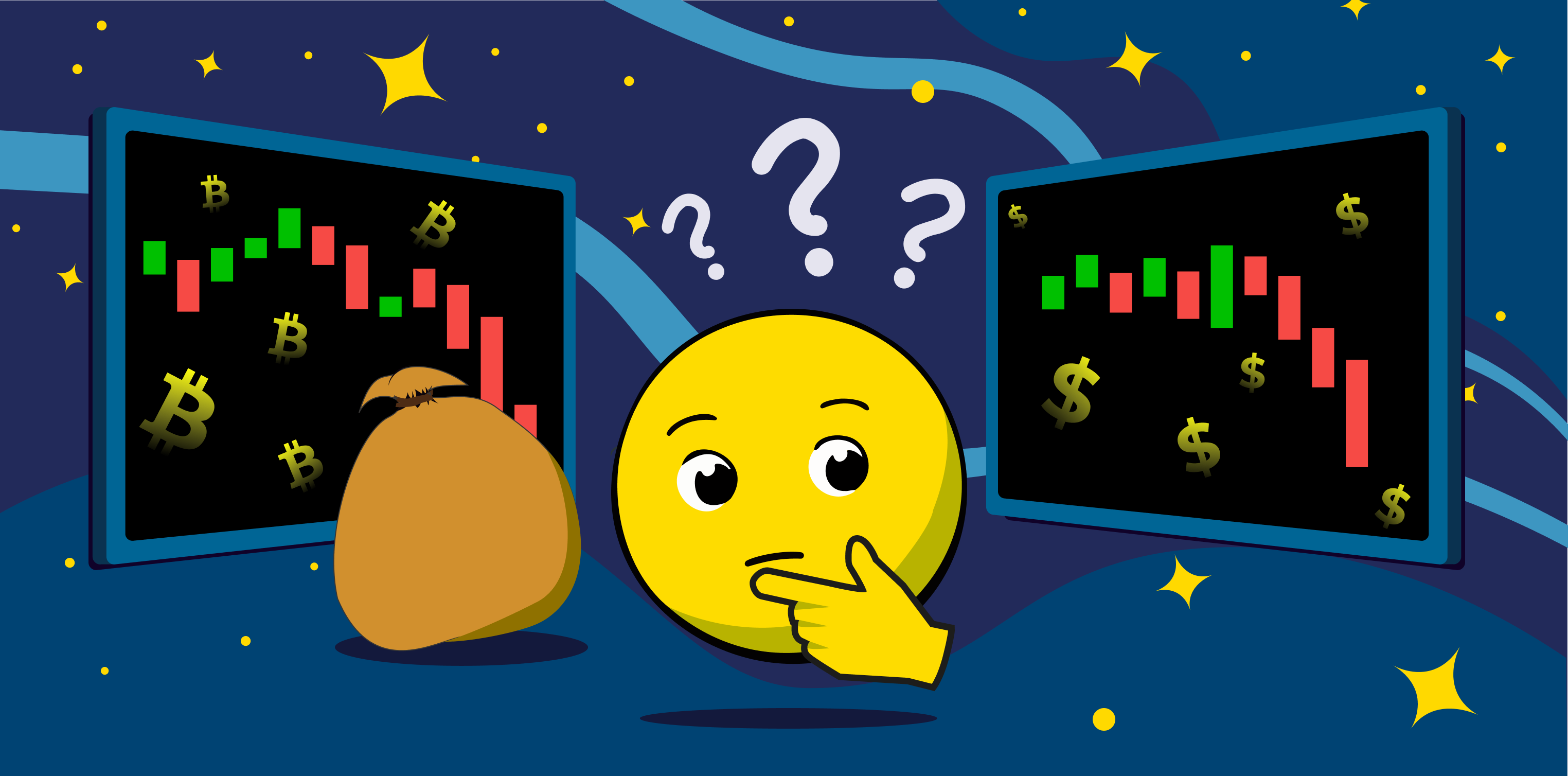
When you start investing in crypto, you may either get returns impossible to acquire within the realm of traditional investments or be fooled easily and lose everything at once. Be careful, the risks are high – and we are not even talking about the high volatility of the market. The truth is, scams are all too common in the cryptocurrency world. Those who have just entered the trading path face difficulty navigating between various concepts and distinguishing decent projects from fraud. Such an unfortunate lack of knowledge is often used by criminals who aim to steal assets from the objects of a scam. Let’s look at the strategies criminals and hackers entice their hapless victims. So, how exactly frauds in the crypto space look like?
Fraudulent ICOs
Let’s say, decentralization and anonymity grant us not only benefits. Along with them, a new type of fraud has blown up. A fake ICO, or exit scam, is a fraudful venture by unethical cryptocurrency promoters who fade away with investors’ money during or after an ICO. As simple as that: founders launch a new crypto startup based on a promising concept, fabricate a fundraising campaign, create marketing hype, and persuade people to buy. The ICO then collects money from the investors and operates for a while. Then the founders who had gathered all the money disappear, leaving the investors in the lurch. The ignorance and carelessness of newbie investors, who dream of hundredfold returns on their money in a matter of days by just “hodling” their ICO tokens, do the rest. It happened many times – it is enough to recall PlexCoin, Benebit, or Confido scam cases.
How to avoid ICO scams?
We would recommend you conduct thorough research before getting involved. Get to know the team: there must be actual people behind the company. It’s increasingly common for scammers to invent fake founders and biographies for their projects. Then scrutinize the whitepaper – it is a document usually available on a project website that outlines the aims and strategies of the project. First of all, check if it’s original and wasn’t copied from somewhere. There should be a roadmap with a timeline indicating all the stages of the future project at different levels of detail. The purpose of such documents is to resolve all the potential investors’ questions, so keeping away from the projects with any obscurities in the official documents is the only right choice. It’s essential to realize clearly whether or not the given coin offering has what it takes to be successful.
Phishing scam
A phishing scam is a kind of internet fraud aiming to get users’ sensitive information. Speaking of cryptocurrency, this includes stealing passwords, private keys, and a recovery seed phrase. It may be e-mail spoofing when users get mass e-mail distribution with fake alerts from exchanges or crypto wallets, which motivate them to change or update the account details by the following link. Another way is phishing websites that seek to obtain login information by tempting potential victims to enter their data not on a real website but its one-to-one clone. To protect your assets against this type of attack, be warned and never reveal your password or recovery seed phrase to anyone. Whoever asks you for it, he is trying to rip you off. The same we can say about the next type of cryptocurrency fraud.
Impersonation fraud
One more way is acting on social networks, Twitter or Telegram, to name just a few. The criminal may impersonate a legitimate entity starting from major crypto founding fathers (for example, there are several accounts named Vitalik Buterin on Twitter these days) to a simple chat administrator. By the way, that’s why the rule not to contact support services in Telegram exists: chat administrators never contact you first and, moreover, never offer you any investments with a quick return. To protect yourself, don’t fall for any astronomical bonus promises. Just admit, hardly ever has Elon Musk decided to reward even such a dedicated supporter.
Ponzi scheme
Ponzi scheme is yet another investment scam that lures people and then pays profits to the existing investors from money contributed by new ones. The concept is to create the illusion that profits are coming by legal means like sales but not from other investors. Opposite to the above-mentioned types of fraud, Ponzi pyramids need to survive for a longer time to gain significant profits. Such type of fraud requires a constant flow of new investments, so the longer it maintains the illusion of being legit, the greater money it gains. When it becomes hard to gather new investments, or when a large number of existing investors cash out, these swindles typically collapse. The Ponzi scheme is quite an old-fashioned technique. This kind of scam is named after infamous swindler Charles Ponzi who duped investors in the 1920s with a postage stamps speculation scheme. A perfect example of Ponzi scam from the crypto industry – OneCoin financial pyramid, which started in 2015. The company positions itself in the market as a developer of a digital currency similar to Bitcoin, but in practice, it doesn’t have any license and acknowledged as a scam.
Pump and Dump scam
One more common internet scam involves the classic “pump and dump scheme”. P&D is a form of price manipulation that attempts to boost an asset price through investment advice rested on false or misleading information. In a traditional securities market, this practice is illegal and can lead to heavy fines. But since the crypto market remains unregulated in most of the countries, rate manipulations became quite common in social networks. How does it work, though? There are quite a lot of Telegram chats and channels where scammers organize “pump groups” and post so-called “signals”, enticing the members to invest in a specific cryptocurrency rapidly. This scheme typically targets small, thinly-traded altcoins as their rates are easier to manipulate: it does not take a lot of buyers to “pump” the rate. When the price jumps in and selling volume reaches its critical value, the scammers sell their shares, causing the price to fall significantly. The fastest and most skilled traders win up to 150% or even more, leaving the others at a loss. But what is wrong with the signal if investing is just like gambling at some points anyway? Well, the very idea of signals implies detailed technical and fundamental analysis, but according to P&D strategy, the scammers simply pick a random altcoin and try to push its price higher.
Conclusion
We have considered the main types of scams popular in the cryptocurrency area, and here are some basic rules we all had better follow. First of all, stay skeptical. Whenever someone you don’t know offers you an unsolicited hot stock tip, ask yourself: Why me? Why is this stranger giving me this tip? How might he or she benefit if I trade? Forewarned is forearmed: to avoid scam, no matter how enticing an offer may look, always do your own investigation, borne in mind the source, and pay attention to the red flags. And once again – give attention to the reliability of the team behind the project, don’t buy into unrealistic returns promised in massive advertisement campaigns, and inspect the documents diligently.



